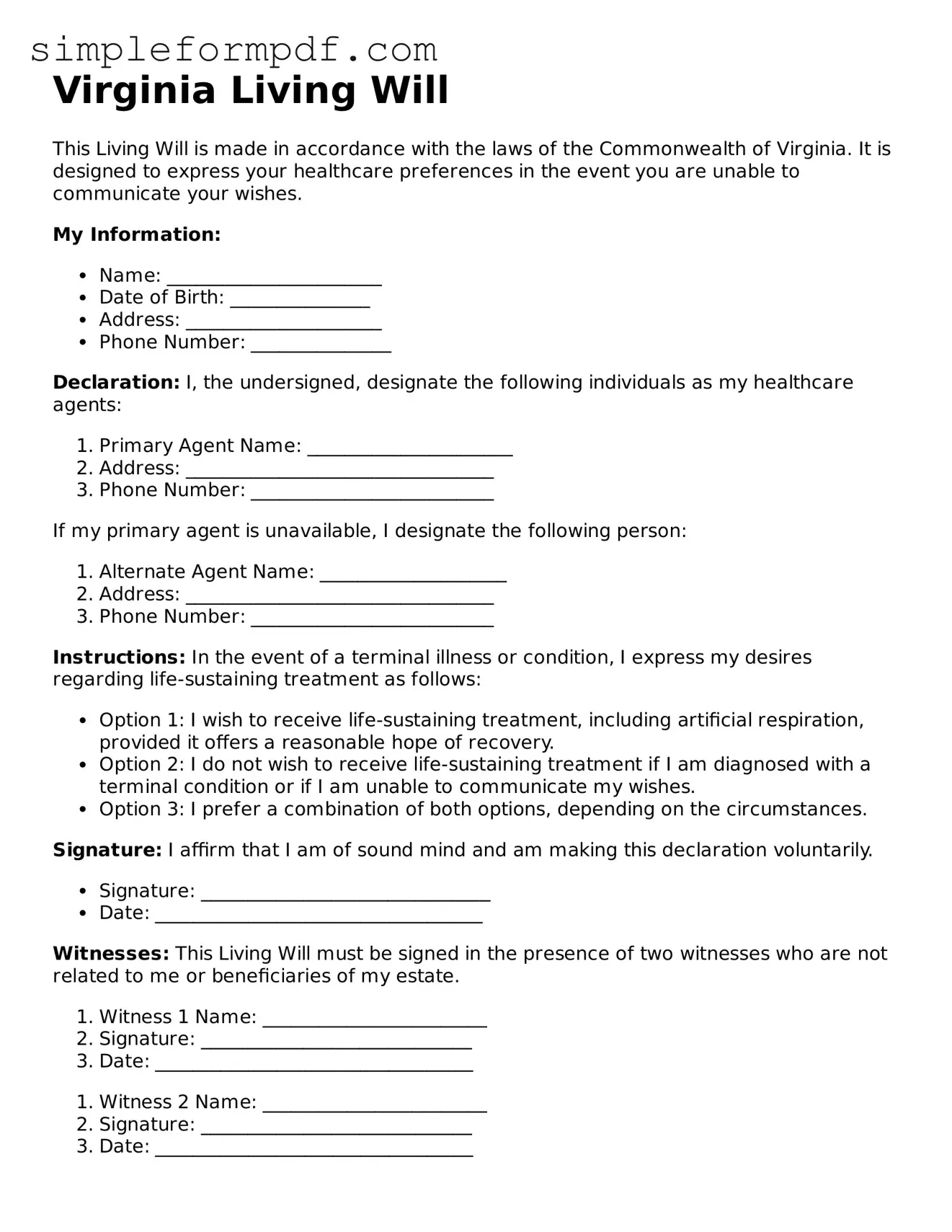Free Living Will Form for the State of Virginia
A Virginia Living Will form is a legal document that outlines your wishes regarding medical treatment in the event you become unable to communicate your preferences. This form ensures that your healthcare decisions are respected and followed. To take control of your future healthcare, consider filling out the form by clicking the button below.
Launch Editor

Free Living Will Form for the State of Virginia
Launch Editor
Need instant form completion?
Finish Living Will online in just a few minutes.
Launch Editor
or
Download PDF
